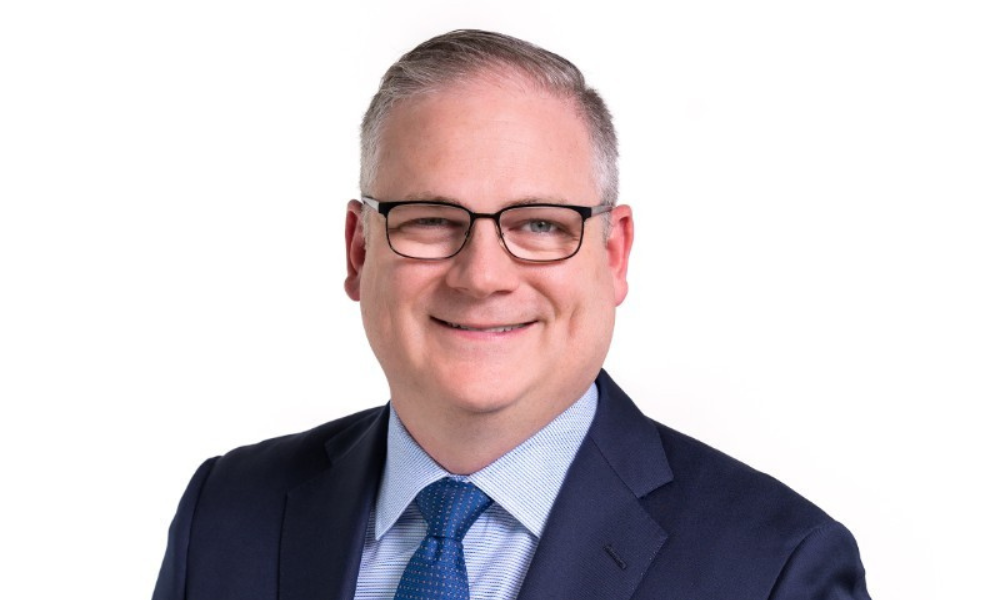EVP stresses the need for grant programs – and for the mortgage industry to look deeper

Affordable housing is an issue close to the heart of Nathan Vogt (pictured), EVP and mortgage president at First Horizon Bank.
“My parents didn’t have all these grants available to them when they first got a home. Their first house was a small 700-square foot, two-bedroom deal. They were unable to get financing through a bank and had to take out a private loan instead, but at that time it meant getting a double-digit ARM,” he said.
That Vogt should end up working for First Horizon, a bank largely dedicated to serving low to middle income (LMI) borrowers and helping them on their home-buying journey, is rather fitting.
Based in Memphis, Tennessee, First Horizon’s internal grant programs and CRA (Community Reinvestment Act) mortgage products have been lending to minorities and CRA-qualified borrowers since 2017.
Vogt highlighted the Homebuyer and First Responder grant, the latter aimed at health care workers, police officers and teaching staff.
“It’s about trying to make sure that we work in our communities, and the diversity grants are just the latest iteration that are based off the majority-minority census tracts,” he said.
Read more: Fed rate increase reaction – higher borrowing costs coming?
Vogt has been at the forefront since joining the bank, helping to roll out five specific products to help LMI borrowers. The bank’s latest product, the diversity grant, is aimed at increasing homeownership opportunities in majority-minority census tract areas where at least 50% are made up of minorities. The net result is that the bank has increased lending for the Black community by 20% in the last five years.
“LMI is focused for everyone, but from a diversity perspective, we’re trying to grab that lost middle that still need support because they’re trying to get into a home to grow wealth, and the diversity grant does a good job with that,” Vogt told Mortgage Professional America (MPA).
Vogt is also responsible for the sales team, including overseeing the CRA LO’s reports. Under the Community Reinvestment Act, financial institutions such as First Horizon are encouraged to help meet the credit needs of the communities in which they do business, and that includes LMI neighborhoods.
Talk of LMI borrowers inevitably leads to the wider issue of Black homeownership, as this group in particular has been more severely impacted than most.
Recent data shows that the rate of Black homeownership has contracted severely in the last 50 years (roughly 45% compared to 73.8% among non-Hispanic White households).
Analysis by online real estate platform Zillow also revealed that Black applicants were denied a mortgage at an 84% higher rate than White applicants in 2020. Earlier this year it also came to light that Wells Fargo rejected nearly half of their Black homeowners refinancing applications in 2020.
Read more: CEO’s meteoric rise to the top
According to experts, there are numerous factors that contribute to reduced levels of Black homeownership, including economic deprivation and suspected racist practices.
Some believe the way to address the issue is to improve people’s financial literacy, which would also lead to higher credit scores among LMI borrowers. Others strongly argue for a relaxation of overly strict zoning regulations to make it easier to build affordable housing, but there are also those who suggest that the problem can only be solved at state and federal level.
Vogt said there was “no certain silver bullet” but stressed that the mortgage industry needed to look closer at less affluent communities to find at least some of the answers.
“You can put out the best products in the world, but if you don’t hire people that are living or working in those communities that you want to lend in, it’s not going to do any good,” he said.
“If you’re not hiring in the community, how do you expect to get the volume there? They have the same centers of influences that we would have in more affluent areas. You need to make sure that you’re recruiting for that as well - that’s a big piece of it, too.”
Vogt said the bank was partnering with Operation HOPE (a non-profit organization working to improve financial literacy), noting how they worked closely with borrowers to help improve their credit scores.
In the current economic climate, with rates now surging close to 7% for the average 30-year fixed-mortgages, LMI borrowers may find an affordable house even less feasible, but Vogt insisted that brokers still have a major role to play educating LMI customers and helping them in their home-buying aspirations.
“The biggest thing is communication,” he said. “You wouldn’t believe how many people still think you need 20% down to get a mortgage. I just don’t think we always do a great job of getting the word out there.”



